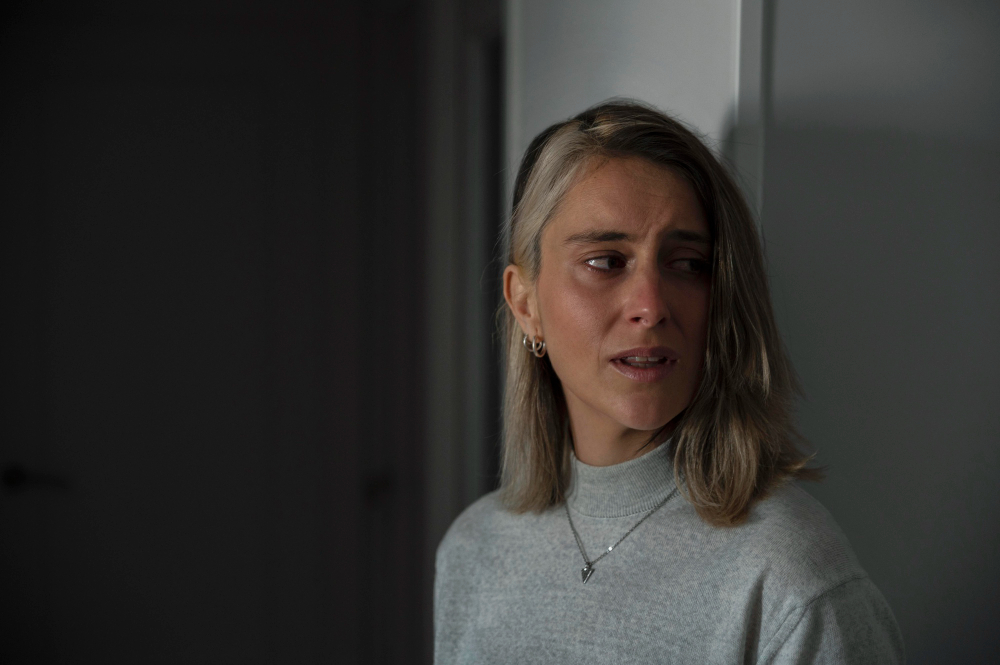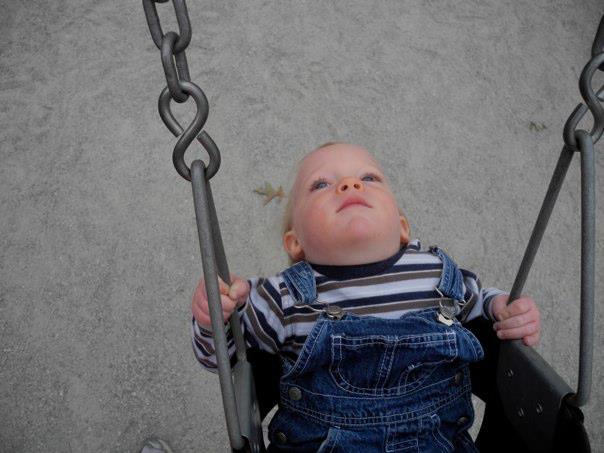On Thursday, I changed my work calendar, after suffering a nervous breakdown the night before. On Wednesday, I had 7 meetings in one day, stacked with half-hour gaps. Almost every meeting ran long and I held my pee for 4 hours and my dog pooped on the floor. I had things to accomplish and they did not get done. I had two impending launches and work was feeling like a pressure cooker.
My personal and family life has been blowing up and work relationships have felt strained and it was just all too much, and I felt a click, like my brain broke.
So I did what I could, erecting strong boundaries to try to avoid a repeat of the harrowing previous day. With full encouragement from management. Two hours a day would be left open to scheduling in my calendar without prior check-in. If anyone wanted to schedule outside these times, they could talk to me directly, and I likely could be flexible.
The intention
Mary had just come back from vacation on Friday. She was trying to get her arms around everything again. Client timelines, overlapping priorities, pressure from above. I don’t think she was trying to be invasive. I think she was worried. I think she knew what it would mean for the project—and for me—if I burned out fully and had to take stress leave.
She asked in a public channel if a time could work and I responded with times that could work, carefully chosen to reflect my true capacity. So when she replied publicly: Are you sure Thursday works? You’ve got quite a few meetings already, even though I flinched, I replied back carefully and let it go.
First breach.
I’m offering those times because they do work for me. I knew there were a lot of meetings that day but they were clustered into chunks in the morning. Half of them were low-key internal and I had four uninterrupted hours to enjoy in the afternoon. But I did not put this explanation into the public channel because I did not feel like that was necessary. I expected her to take me at my word.
She replied: Sure, I’m trying to be mindful of those times—that’s why I asked.
Second breach. Not an apology. Not a step back. Just a soft reframing of doubt.
Then, today, in scrum, she brought it up again. She suggested we shift the meeting to a day I had already declared off-limits. She floated skipping scrum to make it work. She said my day looked too intense.
Third breach. In public. After I had already explained. I felt my nervous system flare.
The moment of rupture
I said, This feels patronising. I’ve already explained myself. When you bring it up again, it feels like a challenge to my autonomy. I need you to take me at my word. Then my heart palpitated so quickly from embarrassment that I lost peripheral sight. So embarrassed to have a confrontation in a group.
Afterward, I messaged her to connect privately. I wanted to repair. She said she felt completely called out. That she was trying to care.
And I believe her. I’ve been her. And as a prior PM, I’ve overridden someone’s signals because I was concerned—because I thought my concern mattered more than boundaries.
But I also know this: she didn’t get called out by accident. I had already said—twice—that requests outside my availability should come through a direct message. That wasn’t just a preference; it was a clear boundary, offered in good faith. And yet she chose to bring it up publicly and again in scrum. I had already described a near-collapse.
If someone is showing signs of burnout—nervous system fragility, tight boundaries, withdrawn availability—then publicly questioning their choices is not care. It’s pressure. And if you want to support someone in a mental health crisis, you don’t put them on the spot. You don’t override the method of contact they’ve asked for. You don’t ask for more control over them when they’re clearly trying to maintain a sense of control. You trust. Or you ask privately. Or you say nothing, and let the support be your silence.
What PDA children already know
Care is not something you lob at someone and expect it to soothe; it is something you craft with precision and humility, adapting the offer to match the person’s emotional reality and receiving their cues as sacred data. It requires consent, attentiveness, and a relinquishing of the urge to rescue.
That is what I needed in that moment—care that didn’t insist, didn’t perform, didn’t call attention to itself. I needed space, trust, and the quiet dignity of someone believing me without a show. But Mary, stressed, worried, and assuming, wasn’t in the place to offer that care.
This is the exact reason PDA children so often reject care when it arrives at the wrong moment, in the wrong tone, in the wrong setting—because what adults frame as help, their nervous systems interpret as threat. And when they pull away—whether through shutdown, dissociation, fury, or flight—many adults collapse inward, taking it personally, retreating instead of repairing, and confirming the child’s fear that support is conditional, performative, or unsafe.
When professionals withdraw
Almost every single person who has tried to help my son at school has eventually stopped. Not because he didn’t need support, but because they were laid off, got another better paying job, or their approach—rooted in urgency, exposure, compliance, and performance—was triggering for him. And when he couldn’t receive it, they felt rejected. So they withdrew. And he was left alone. Again he had a major meltdown, hurt someone he cared about, or eloped to climb a tree dangerously high.
This is a systemic issue. It’s not that these professionals are unkind or unwilling. It’s that they haven’t been trained to understand what’s actually happening. They aren’t taught that when a child resists help, the task is not to take it personally. The task is to reflect. To ask what didn’t land. To try again differently. But without adequate training, most adults interpret rejection as failure—and their emotional response becomes central, eclipsing the child’s needs.
What looks like ego is often just a lack of scaffolding. What feels like personal hurt is often just the absence of a professional lens.
This isn’t about blame. It’s about standards.
If we want children like my son to receive care that actually helps, then we need to prepare adults with the emotional and cognitive tools to respond to rejection with humility, iteration, and perspective-taking. To treat support as a practice, not a performance.
That’s what professionalism looks like. And anything less leaves our children carrying the consequences.
-
On masking and self regulation
One of the most surprising and disorienting lessons I’ve learned—through parenting neurodivergent twins, through surviving the school system alongside them, and through slowly unmasking myself—was this: You can’t fake regulation You cannot breathe slowly enough, sit still enough, or smile warmly enough to…
A vulnerable class
PDA children are a vulnerable class—currently unrecognised, deeply misunderstood, and profoundly discriminated against within the public education system.
Their needs are routinely reframed as behavioural problems. Their refusals are pathologised. Their distress is punished or ignored. And most critically, the support they are offered is almost always structured around the needs of the institution—not the needs of the child.
Schools often present “help” in the form of a pre-set menu: reinforcement strategies, token systems, sticker charts, check-ins, reward-based regulation. These are the things we offer. But this is not true accommodation. This is institutional convenience dressed up as support.
For a child with a PDA profile, meaningful accommodation is not a toolkit—it is a dynamic, evolving, consent-based relationship. It is a dance of atunement, trust, and timing. It requires listening, patience, and the capacity to set aside one’s own ego when an offering of help is declined. It is not efficient, streamline, liable to lead to independence soon. It is not standardised. It cannot be measured with progress charts or prize bins. It cannot be built quickly or ripped away without consequence. PDA is a lifelong neuro-developmental disability—measurable, neurological, and real. If you were to place my child in an MRI scanner and compare their amygdala activation to a neurotypical peer, the difference would be striking. You wouldn’t take a wheelchair away from someone with a spinal injury and expect them to walk. Likewise, you cannot remove the relational, sensory, or emotional regulator from a PDA child and expect them to function. That regulator—whether it’s a specific routine, a trusted adult, a quiet refusal, or a boundary fiercely protected—is the access point for safety, trust, and learning. It is what allows engagement to begin.
And because our education systems have not built the capacity—or the will—to offer this kind of care, PDA children are left exposed. They are punished for needing what no one has been trained to give. They are failed again and again by professionals who misinterpret their protective instincts as oppositional behaviour.
This is discrimination.
It is systemic.
And it is preventable.
-
Pathological Demand Avoidance (PDA)
Pathological Demand Avoidance is a neurobiological profile of autism rooted in anxiety, autonomy, and nervous system threat perception. For children with PDA, even simple requests can register as danger. A question, a suggestion, a cheerful invitation—all of these may activate a survival response,…
The emotional cost of misunderstood care
If we continue to treat support as something that must be accepted in a specific form, on a specific schedule, through a specific tone, we will keep retraumatising the children who most need us to do better. We will keep pushing PDA children to the margins—and blaming them when they refuse to perform gratefulness in the face of coercion.
This is not just about professional boundaries or peer relationships. This is about adults entrusted with care, facing children whose pain often arrives disguised as resistance. This is about growing our capacity to respond—not react—when support doesn’t land as we expected.
It brings me back to that moment in scrum, to the white-hot flare of my nervous system, to the impossibility of explaining for the third time that my calendar already reflected my limits. I set a boundary, calmly. I said, “this works for me.” It did not land. And the consequence fell on me.
-
Non-coercive, trauma-informed alternatives to PBS/ABA in BC schools
Positive Behaviour Support (PBS) and Applied Behaviour Analysis (ABA) are behaviourist approaches widely used in schools to manage student behaviour. However, a growing chorus of neurodivergent advocates, educators, and researchers highlight that these methods often prioritise compliance and “normalising” behaviour over student well-being rcpsych.ac.uk. By focusing…
The extinction of trust
How do you think my son feels every time a support person—however well-meaning—tries some awkward outreach, or parachutes in with a sticker chart, or calls his name in a sing-song tone to coax him into trust, and then recoils when he doesn’t bond immediately? This is the 32nd adult the system has thrown at him. He is exhausted. He is smart. And he is scanning for signs of coercion beneath the script of kindness.
When support fails to land, and the adult sulks away or gives up, the child is left holding the weight of their rejection and the emotional fallout of someone else’s dashed self-image. That is the opposite of care.
True care begins with belief, and bends itself around the truth of the person it’s meant to reach.
And the reason he no longer trusts most people who try is because he’s been through the system long enough to understand how quickly support disappears. It has been removed from him over and over again. He has endured months—years—of surviving without it, and instead of being held or protected, he was praised for making it through. Every day he held it together without adequate accommodation, he was told he was doing well. He was called resilient. He was rewarded for managing.
The system is built for the extinction of support. This independence dogma—this pathological belief that the goal of inclusion is self-sufficiency—erodes trust and abandons those who need help most. And when children internalise that their support is contingent on good behaviour, fast bonding, or passive compliance, they learn that their survival depends on masking, withholding, and withdrawal.
That’s why PDA children flinch at help. That’s why they test you. That’s why they say no before you’ve finished your sentence. It’s not defiance. It’s wisdom.
-
I only asked for gentleness: on parenting a PDA child in a punishing world
There is a certain kind of child—intuitive, emotionally articulate, wired with a startling perceptiveness about power and tone, about coercion and choice, about the invisible terms of adult authority—whose presence in the classroom becomes, almost immediately, a threat to the institution’s rhythm, a…











